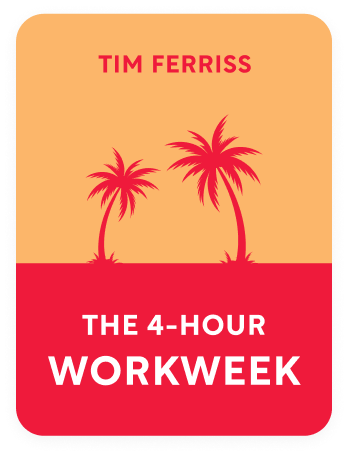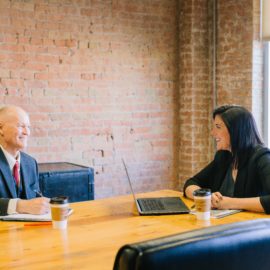

This article is an excerpt from the Shortform book guide to "The 4-Hour Workweek" by Tim Ferriss. Shortform has the world's best summaries and analyses of books you should be reading.
Like this article? Sign up for a free trial here .
What is selective ignorance? How does it work?
Selective ignorance is when you choose to ignore information that won’t help you. If you can’t learn from it or act on it, you don’t have to take it into account.
Keep reading to find out how selective ignorance works and how to use it.
Selective Ignorance for Unimportant or Unactionable Information
Reading and informing yourself takes up a lot of energy. If you want more free time, you need to drastically cut down on the amount of time you spend consuming information. Do this by ignoring anything that’s not important or that you can’t do anything about. For example, the author only reads newspaper headlines as he walks to lunch. He spends only four hours a month reading Inc. magazine and about ⅓ of Response magazine. He assumes that if anything really important happens that he has to do something about, he’ll hear about it from someone. In five years, his “ignorance” has never caused a problem.
The key to this ignorance is that it’s selective. Ignore whatever the world throws at you. When you do need information, seek it out, ideally in a more digestible format than the original. For example, Ferriss learned enough to vote in the last federal election by doing the following:
- He asked smart American friends with similar values to his how they were going to vote.
- He was living in Berlin at the time and asked his friends there for an outside perspective.
- He watched the presidential debates.
Not only was this an efficient way to get all this information, it was also free. This is an example of selective ignorance.
If you don’t have friends who can advise you on a particular topic:
- Read a book on the subject. Choose it based on reviews and authoritativeness. Only read the parts that are immediately relevant.
- For example, when the author was trying to get The 4-Hour Workweek published, there were tons of books about getting published. He chose one by first-time authors, like himself, who had done the same thing he wanted to—sell a book to the world’s largest publisher.
- Using what you’ve learned from the book, come up with good questions. Get in touch with experts in the field for answers. Not only will you get information, you’ll network.
- For example, the author posed his questions to authors and literary agents.
Steps to “Selective Ignorance”
There are three steps to starting and maintaining selective ignorance:
1. Ignore all media for one week to demonstrate to yourself that you don’t need to be spending time on it. No news, magazines, books, audiobooks, radio, or TV. No going on the internet unless you absolutely need to complete a task for a particular day (no advance research). You can still listen to as much music as you want, watch an hour of TV for fun, and read fiction for an hour. (And keep reading The 4-Hour Workweek.) Things to keep in mind while doing this step:
- Spend the time you’ve freed with your family or studying The 4-Hour Workweek. (It may seem hypocritical to suggest reading The 4-Hour Workweek, but the author says it’s not because the book contains important information that you need immediately.)
- Ask someone for a five-minute review of current events at lunch every day. Once you realize that current events don’t affect your life or decisions, stop asking.
- Use web plugins to block certain websites.
2. Make sure that, if you’re going to consume information, you’re going to use it immediately, and on something important. If you’re not going to use it immediately, you’ll forget it by the time you need it, and have to relearn it. Learn things only as you need to know them.
3. Don’t finish things if they’re not helpful. If you start reading a book and discover it’s boring or unhelpful, stop. You’ll save yourself time.
Speed Reading
Speed reading can help you with selective ignorance. Follow these steps to increase your reading speed in just a few minutes:
- For two minutes, read while running your finger or a pencil under each line as you read it as fast as you can. This will help your eye jump to the next line without losing any time reorienting.
- For three minutes, focus on the third word at the beginning and end of each line. This way you can move your eyes less. You can catch the beginning and end of each line with your peripheral vision. Indent further as you get more comfortable.
- For three minutes, read as fast as you can using the above techniques for five pages. It doesn’t matter if you remember anything you read. Then, go back to a comfortable speed. You’ve reset your baseline by speeding through those five pages, so your “comfortable speed” will be twice as fast as your regular speed.
If you want to figure out how fast you read a particular book, calculate the average words per line using ten lines. To get average words per page, multiply the average words per line by the number of lines per page. Time how many pages you can read in a minute, and then multiply the page count by the average number of words per page.

———End of Preview———
Like what you just read? Read the rest of the world's best book summary and analysis of Tim Ferriss's "The 4-Hour Workweek" at Shortform .
Here's what you'll find in our full The 4-Hour Workweek summary :
- The 4-step process to live a "retired" lifestyle now
- Find out if you're wasting the best years of your life working a 9-5
- How to create a business that makes you money without sucking up your time






